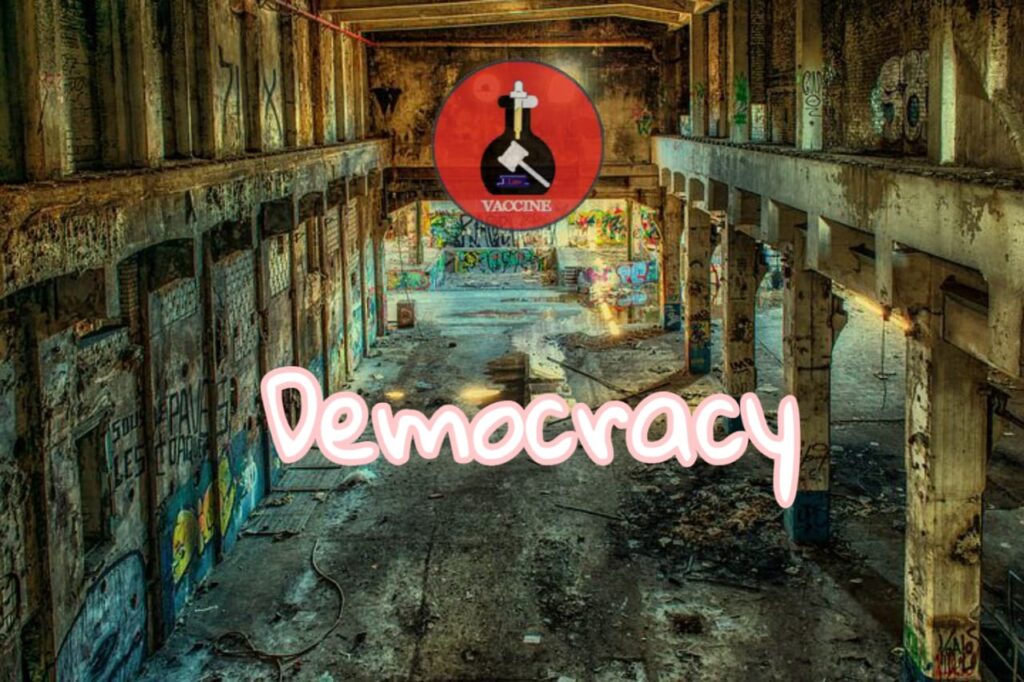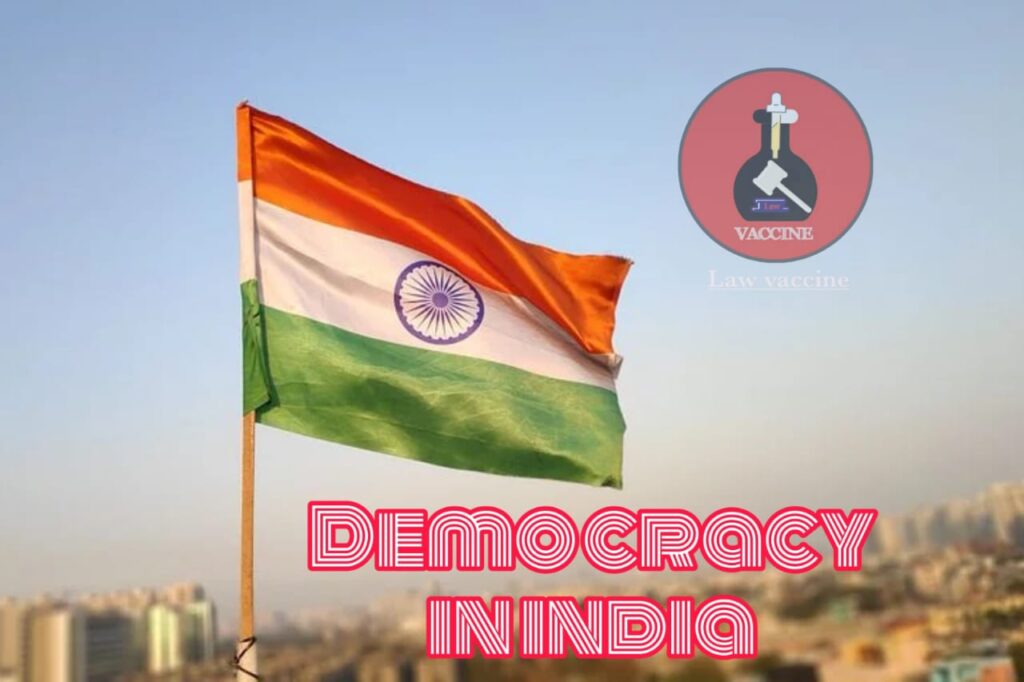Democracy in India and Pillars of Democracy
What do we mean by democracy in India?
Democracy in India is represented as a parliamentary democracy where the president is considered to be the head of the state and the prime minister is considered as the head of the government.
Our democracy in India follows the federal structure and hence India is called as a federal state.
India had declared itself a sovereign state after when it got independence on 15th august 1947 and came out to be a free nation and with that after adaption of our constitutional democracy in India made it a democratic and a republic state. Therefore the adaption of the constitution gave the citizens privileges with respect to the power having their own choice towards choosing their own government and paved the way for democracy in India.
The father of democracy in India can be various legends with respect to the traditional and modern eras. The father of the nation which is Mahatma Gandhi is also called the father of democracy where on the other hand B.R Ambedkar is considered to be the father of republic India.
What are the principles of democracy in India?
The principles of democracy lie down the structure of governing the system of government by achieving democracy in India and such principles which make India a democratic nation are as follows-
- Check and balance-
Check and balance is a type of system where the different organs of the government keep the check by one another with the help of certain provisions. The power has been given to the judiciary of judicial review upon the actions of the executive and the legislature. On the other hand, it can be said that it is a system that is only applied in constitutional governments.
- Federalism-
The relation between the centre and the states of the union India refers to the federalism in India. Our constitution lays down the distribution of legislative, administrative, and executive powers between the government and states of India under the provision of part XI. It ensures the diversity of the country. It gives power to the state government to take necessary decisions keeping in mind the local needs of the people.
Federalism can be said as a type of government where the powers get divided between the national and other governmental units.
- Individual rights-
Our democracy says that we the people, for the people and by the people, it means that democracy in India is made keeping in mind the rights of the citizens and their rights which they can exercise freely and can have a stand of a respectable citizen.
- Popular sovereignty
Popular sovereignty imposes power upon the people to have their consent over the formation of the authority of states and their government. It means that the government can exercise authority only if it has been permitted by the people for such an act.
Popular sovereignty limits the powers of the government, and this democracy in India is formed by the consent of the people.
- Separation of powers
The separation of powers is the doctrine that enables the organs of the government to functions effectively without hindering each other’s functions. It focuses on the equitable functioning of such a type of constitutional system which indirectly gives efficiency to the government thereby strengthening the democracy in India.
The doctrine says that the organs are restricted to their own sphere and are authorized to work in their own field of work without encroaching on each other’s functions.
What are the major types of democracy in India?
There are several types of democracy but if we talk about India we follow the indirect form of democracy or we can say a parliamentary form of democracy. If we talk about the types of democracy then they are of the following types-
- Direct democracy- This is the form of democracy where people are involved and participate in the decision-making process personally and the important governmental and administrative tasks are performed by the citizens themselves.
- Representative democracy- Representative democracy turns out to be the democracy where the election of the government officials through the people who are being selected as representatives.
- Parliamentary democracy- the democracy where the government is made by the representative who opposed the policies of presidential rule. Democracy in India has a picture of a parliamentary form of democracy. Under this, the government exercises its powers by delegating powers to the executive ministry which is performed with subject to review and check and balance by the legislative parliament which is elected by the people.
- Presidential democracy- the democracy where the president is elected by free and fair elections and becomes the head of the state as well as head of the government. Such a type of democracy is followed in the USA.

What are the pillars of democracy in India?
The democracy in India stands on the note which deals with certain principles which are said to be the pillars of democracy. The pillars of democracy are-
- 1st pillar of democracy is Impartiality
- 2nd pillar of democracy is Representation
- 3rd pillar of democracy is Liberty
- 4th pillar of democracy is Justice
Each of the pillars of democracy has its own importance and plays an important part in making the democracy in India where they stand as a guide towards the functioning of the government.
What is good governance?
Good governance is the key to measure the functioning of government that indirectly makes our government crystal clear in its functioning.
It is said to be the process of decision making and by which the decisions are implemented.
What are the principles of good governance and how it contributes to democracy in India?
Good governance is the medium through which the functioning of the government is carried on keeping in mind its principles for its efficiency and such principles are-
- Participation in the election having fair representation and conduct
- Responsiveness adhere to the responsibility as well as accountability
- Efficiency and effectiveness are one of such principles that are important for the fair and reasonable functioning of the government.
- There has been openness and transparency in their working for conduct
- Principles of rule of law that comes from the check and balance.
- Ethical conduct
- Competency and capacity
- Innovation and openness to changes that can be modified with respect to the efficiency of the government.
Hence it is said that good governance is the process that promotes rule of law and realizes the existence of human rights whether it is civil, political, economic, social, and cultural rights.
There are also certain dimensions upon which good governance works and is measured which indirectly supports the democracy in India.-
- Accountability towards government
- Political stability with respect to fair conduct and participation
- Lack of violence can hamper governmental cooperation
- The efficiency of government which supports the system of governance
- Regulatory quality amongst the organs of government
- Rule of law which will support the sovereignty
- Control of corruption that makes the governance competent and transparent.
What are the effective tools to measure good governance that helps towards the efficiency of democracy in India?
Good governance is always required to be a check upon the system of working management of government and also to evaluate the criteria that can measure the efficiency of good governance that contributes to fair democracy in India. Some of such tools to measure such efficiency are-
- Participation of citizens in the democratic process
- Human resource development and leadership
- Management under public administration
- Local finance
- Cooperation amongst territorial and cross-border operations.
What are the 4 P’s of corporate governance which helps in the formation of democracy in India?
It is very important to know how the government functions and in what manner it gets operated. Therefore the following 4 Ps tell us about the manner of how to cooperate governance functions-
- People-
People are considered to be the organizers who have a purpose to work towards developing consistency and evaluate their own performance outcomes and let them grow themselves
- Purpose-
The purpose goes with the next step towards the process of corporate governance. The governance comes with some purpose to achieve with the help of guiding principles of the governmental organization.
- Process-
We can say that governance is the process or medium through which people achieve their efficiency for their company and such process is counted by analyzing the performance. The process is needed for the achievement of their own purpose and it is beneficial to have a look at the process which leads to corporate governance and its functions.
- Performance-
Analyzing the performance of the person is the key towards any skill in any industry. Performance enables a person to check upon its own success and determine its efficiency towards any work and then apply towards those finding of organization that becomes the very primary functions of the governmental process.
Article by – Nitisha Sharma

